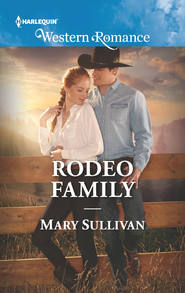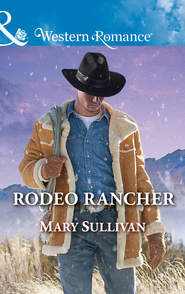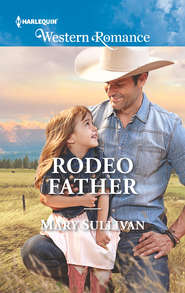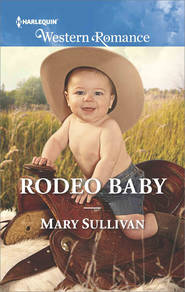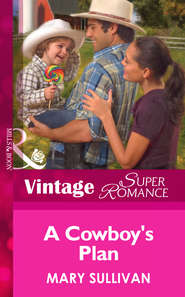По всем вопросам обращайтесь на: info@litportal.ru
(©) 2003-2024.
✖
Safe in Noah's Arms
Автор
Год написания книги
2019
Настройки чтения
Размер шрифта
Высота строк
Поля
“Yep.”
She was silent for a while and then asked, “Will you teach me about them? Help me learn to recognize them?”
“Sure.”
Silence fell again.
“May I turn on the radio?”
He nodded and she fiddled with the knobs. The cab filled with music, but she kept the volume turned low, sort of as background filler.
“So these are people who don’t have enough money to buy their own groceries?” Monica asked as they approached the small Keil ranch.
“The Keils are having trouble making ends meet right now.”
“Why? Is the father crippled or something?”
Noah tensed. “Nothing so Dickensian. Robert has been hanging onto his small ranch for years. He’s a hard worker, by the way.” A note of defensiveness had crept in.
Flatly, Monica replied, “I didn’t say he wasn’t.”
“Rich people—” he glanced swiftly down at the designer jeans she wore “—often assume that anyone out of work or hungry is just lazy.”
She stared out the window, but said, voice low and quiet, “Noah, please stop making assumptions about me. You don’t know me.”
His conscience pricked, he relented. “Fair enough. I’m sorry.” He found he was sorry in truth. They had to get along—they were stuck with each other. And this roller coaster of flaring and abating tension would exhaust them both.
She deserved an explanation. Maybe then she would understand how a simple family managing all right could suddenly find themselves in dire straits through no fault of their own. A reversal of fortune could happen to anyone. As he thought about it more, he realized that Monica probably would understand, because hadn’t Billy’s death been a reversal of fortune for her? Her fortune being her happiness?
“Robert was hanging on, doing all right for himself and his family, when his wife got ovarian cancer. Kayla beat it. She’s in remission. But the medical bills just about bankrupted them. I imagine they’ll be paying for years.”
“Oh.” Monica’s voice sounded small. “I remember Kayla from high school. She was a year or two behind me.” Then she appeared to have a thought. “They own land. Why can’t they grow their own vegetables?”
A reasonable question. “Kayla kept a large kitchen garden before the cancer, but the illness depleted her energy stores. She’s just now getting back to a semblance of normalcy. There’s only so much Robert can do. He has his own chores caring for the cattle and planting the big fields with feed. He can’t also be maintaining the kitchen garden.”
She seemed to be thinking hard.
“The problem for most people,” he explained, “especially small farmers and ranchers, is that they live close to the edge. If something happens, a child gets sick, or we have a really dry summer, they have no buffer. Nothing to fall back on.”
“Are there lots of families like that around?”
“More than you’d think. Things got real bad in 2009 with the recession. Economy’s picked up a bit since then, but not enough. People have their pride, too—which is another problem. They don’t always ask for help, then suddenly you hear they’ve gone bankrupt, or lost the ranch, or moved away for no apparent reason. I don’t want to see that happen to the Keils. They’re good people who’ve lived here for generations.”
He turned up the long driveway. The house and grounds were clean and tidy.
The last time Noah had been here was late last autumn when he’d brought a couple of boxes of root vegetables to get them through the winter. He’d helped Robert fill the old root cellar. They’d have surely eaten those vegetables by now.
He glimpsed the herd in the pasture, noticeably smaller than last summer. Robert was either selling off cattle, or slaughtering and eating them. Probably both. You can’t make money on slaughtered cattle, but a family’s got to eat.
Monica retrieved one of the boxes of food from the back.
“You sure you don’t want to wait here?” Noah held his breath. Now that she’d put him in his place, he found he was doing a one-eighty. He wanted her to visit with the Keils, wanted to make these people real to her, make this more than court-ordered community work. He needed her to understand why this was important.
“I’ll come in.”
Yes. Noah released his breath. Monica had more backbone than he’d given her credit for. Or maybe it was just morbid curiosity.
Robert and Kayla greeted them at the front door with their three young children.
Like the house, the children were clean, but their clothing had seen better days.
Kayla was thin. She used to be a round, jolly woman. Now, her blouse hung from too-slim shoulders, but she offered them a smile and a welcome.
Noah noticed Kayla checking out Monica’s clothes and wished she’d worn something other than designer jeans and suede loafers. Even her attire for the farm was more expensive than the average person’s. Did Monica own anything cheap? Not likely.
At least she smiled at Kayla and said hi.
Despite Kayla’s discomfort—she looked intimidated by Monica—the woman invited them in for coffee. Some people never failed to impress Noah. This was why he raised crops for those less fortunate than himself—because of grace, and because these were good people who deserved a break.
After setting the box of food on the kitchen counter, Monica accepted a cup of coffee. Kayla handed Noah a cup and he sipped. Weak as dishwater.
They all sat at the kitchen table. Conversation was scarce and awkward. Monica gave Kayla surprisingly good ideas for using the garlic scapes, nothing that would cost the family much to implement.
Kayla blurted, “I’ve been looking for work, Noah. Robert and I won’t have to depend on you forever.”
“Hey, that’s great. What kind of job are you looking for?”
Kayla’s fingers worried the hem of her blouse. “Simple things. I was a cashier at the grocery store when I married Robert. I’ve been home with the kids ever since.”
Noah didn’t respond, didn’t want to dash Kayla’s hopes. She’d been out of the market for, at a guess, ten or so years, and her skills were limited.
Monica and Noah rose to leave.
Noah said goodbye and left the house. Monica whispered something to Kayla before she followed him to the car.
Whatever she’d said to Kayla had put a smile on the woman’s face.
In the truck, he asked, “What was that about?”
She fiddled with the air vents to get a breeze blowing her way and flicked on the radio again, with the volume low. “What was what about?”
“What did you whisper to Kayla to make her so happy?”
“I told her I had a dress I didn’t want anymore and I would bring it out to her for her job interviews.” She buckled herself in and they left the property, driving down the highway toward the next delivery. “I’ll bring her some makeup, too.”
“That’s really something.” Noah couldn’t hide his surprise. “That’s really nice of you.”
“I’m not the monster you think I am.”







